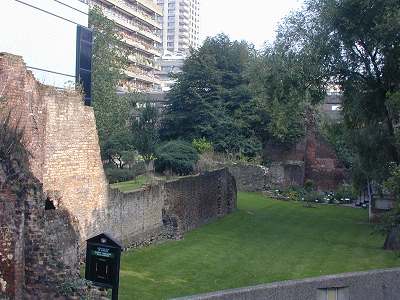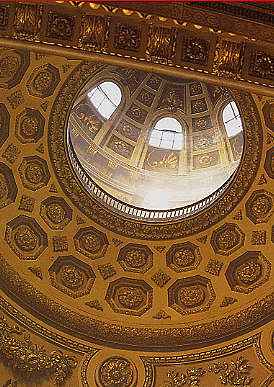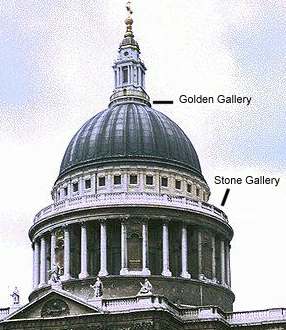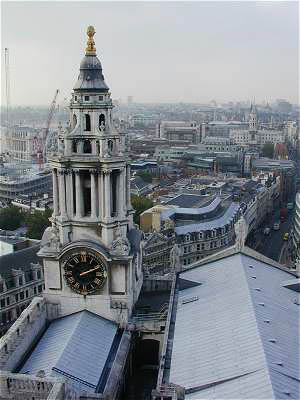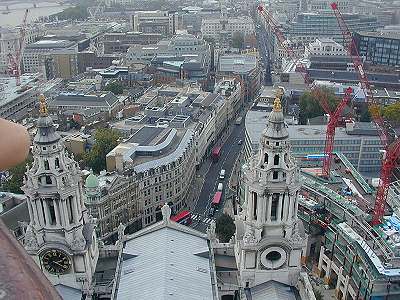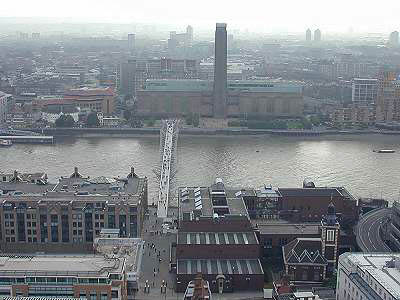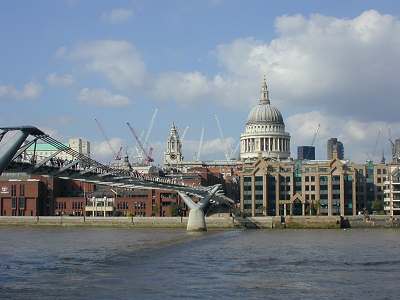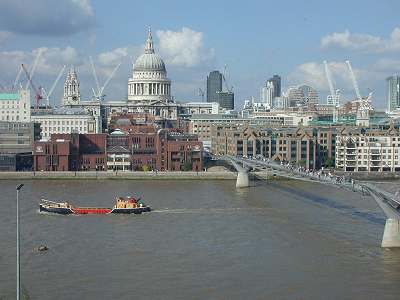The Museum of London has a chronological record of the
city, starting with the Romans, from 55 BC to the 4th century AD. They abandoned
it in 410 AD, after having built a city they called Londinium, which included
a large basilica. There was little activity here until the Saxons rebuilt
the town and the country became known as Angle-Land. In 1016, after attacks
by the Vikings (Danes), the Danish leader Canute became King of England.
In 1066, the Norman, William the Conqueror, invaded and in the battle of
Hastings,captured England. The city continued to grow during medieval
times until the great plague in 1665 and the great fire in 1666. It
was after this tragedy that Christopher Wren was commissioned to build a cathedral.
From the Museum of London we walked to St. Paul's Cathedral and had lunch
there-in the crypt, where they have a good restaurant. We also saw
the memorials to Lord Nelson, the Duke of Wellington and others who are buried
there. We then went to the main floor, where they had had a big 9/11
service the day before.
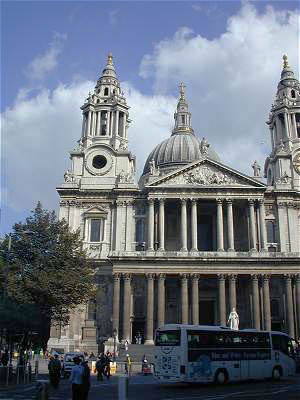
Here we look up to the dome from inside the cathedral. The railing you see is almost 100 feet up and is around the Whispering Gallery, which is called by that name because a whisper at any point in this gallery can be heard on the other side of the 158 foot wide dome.

